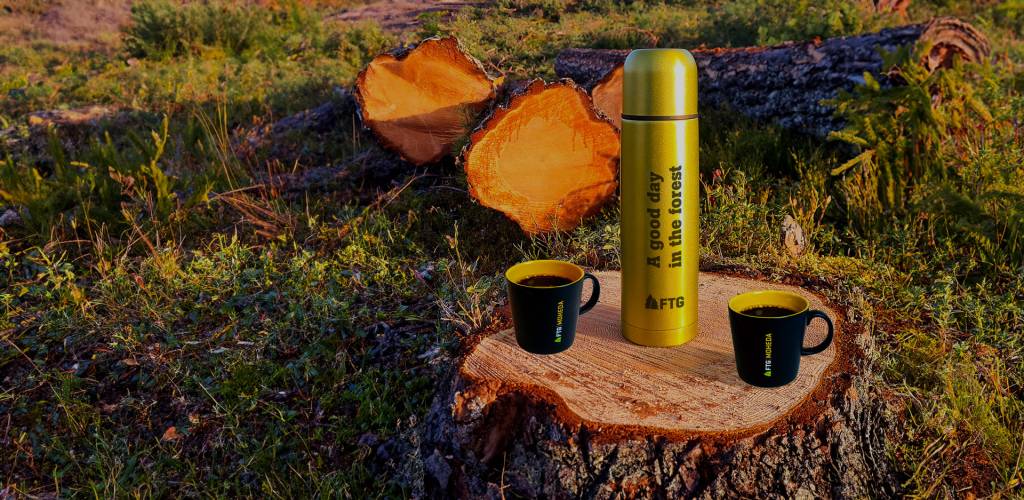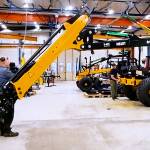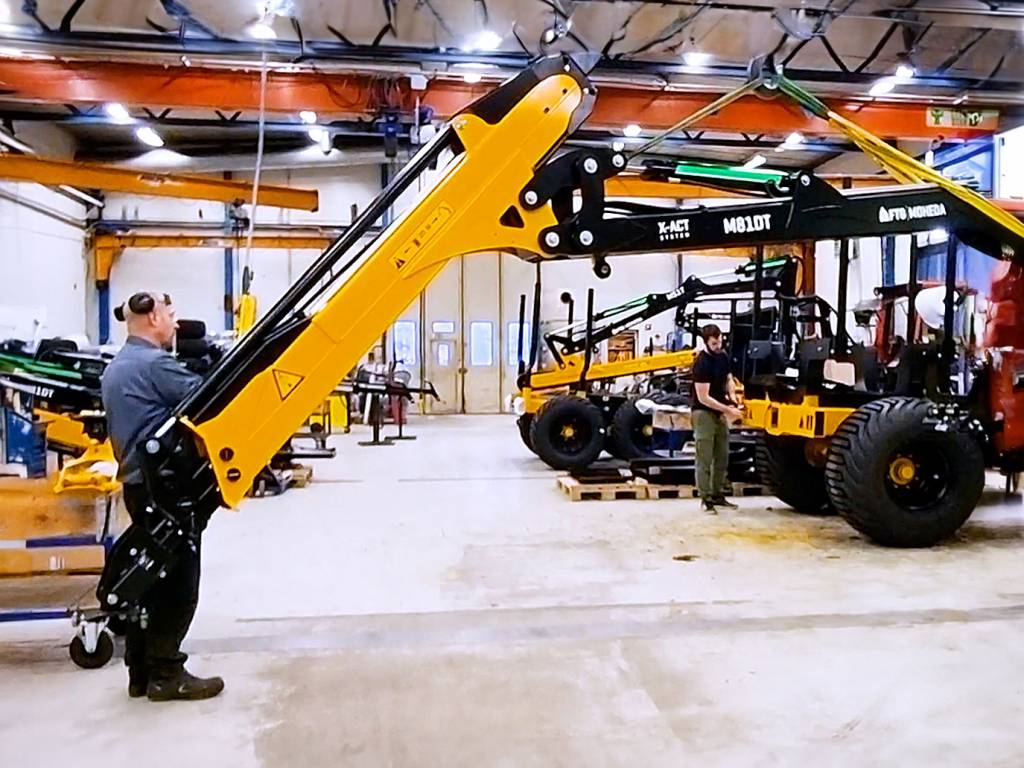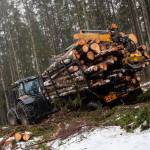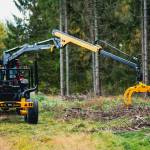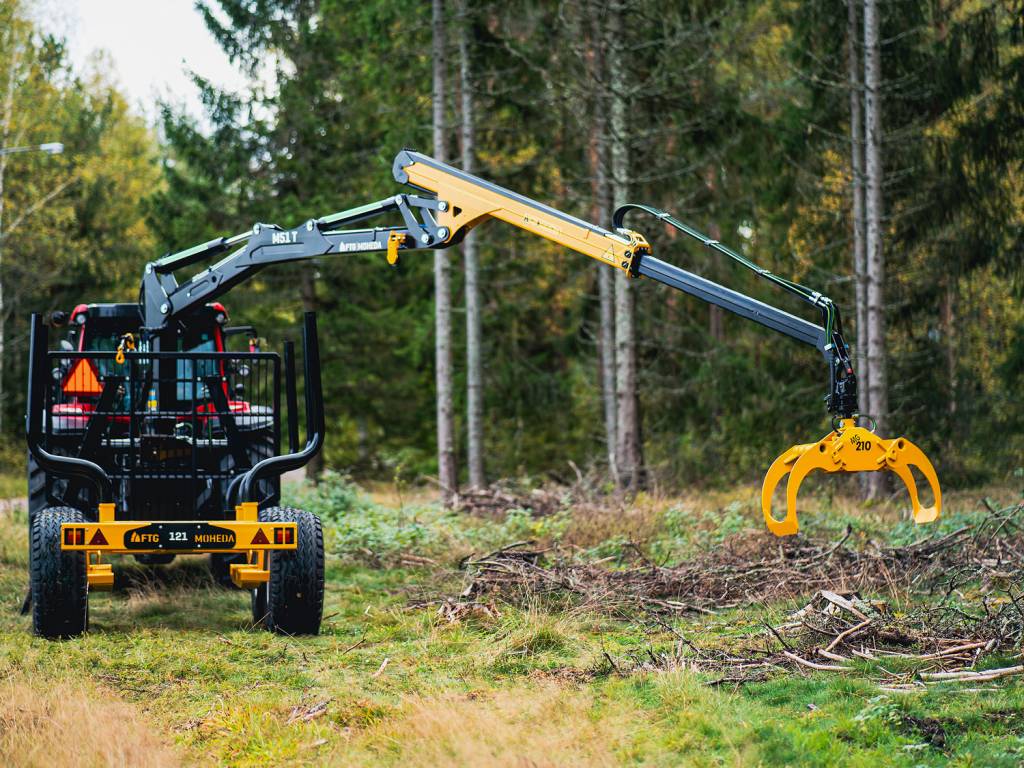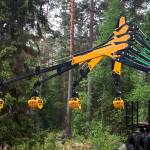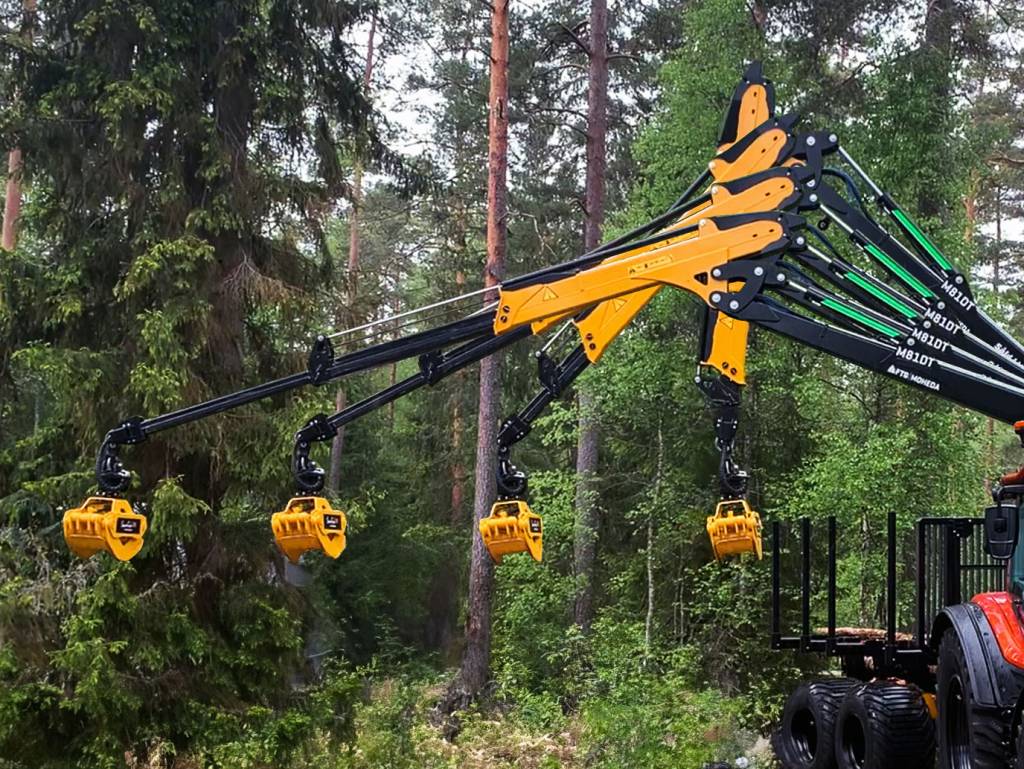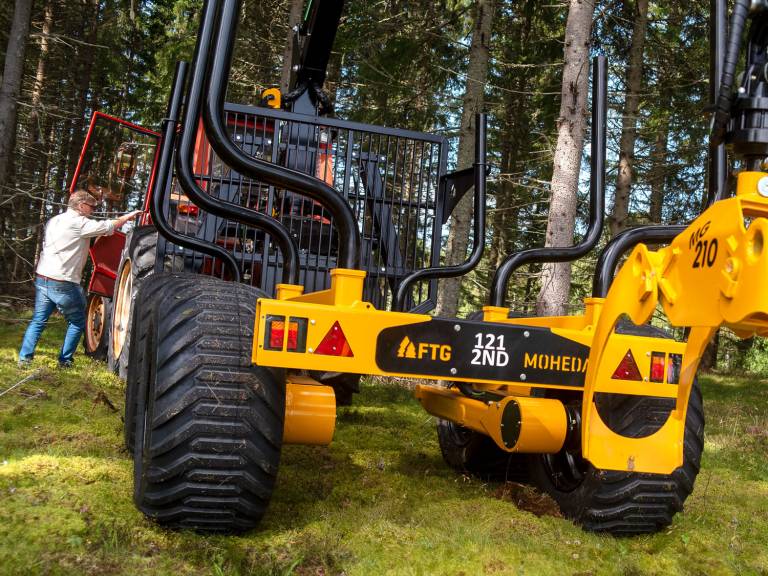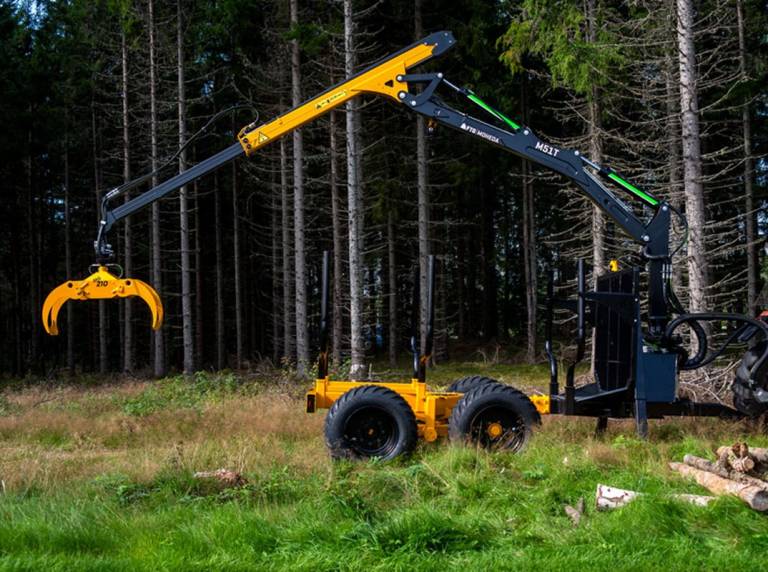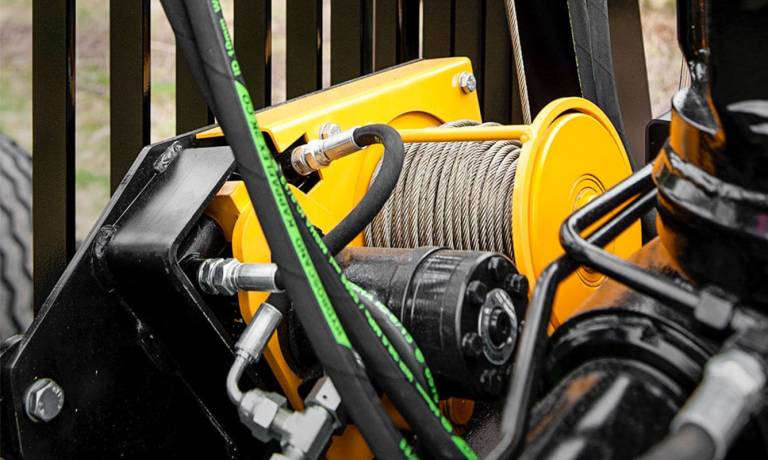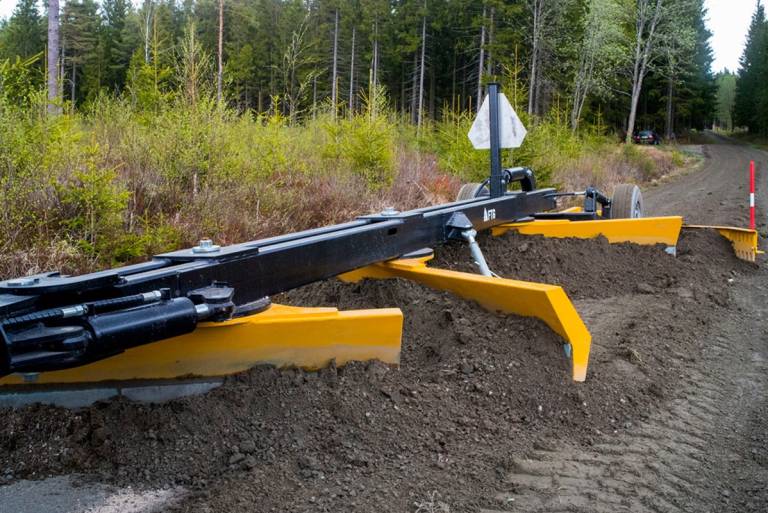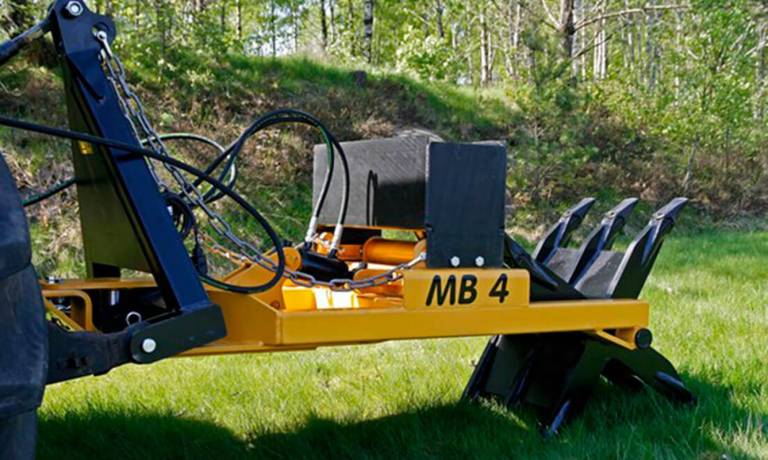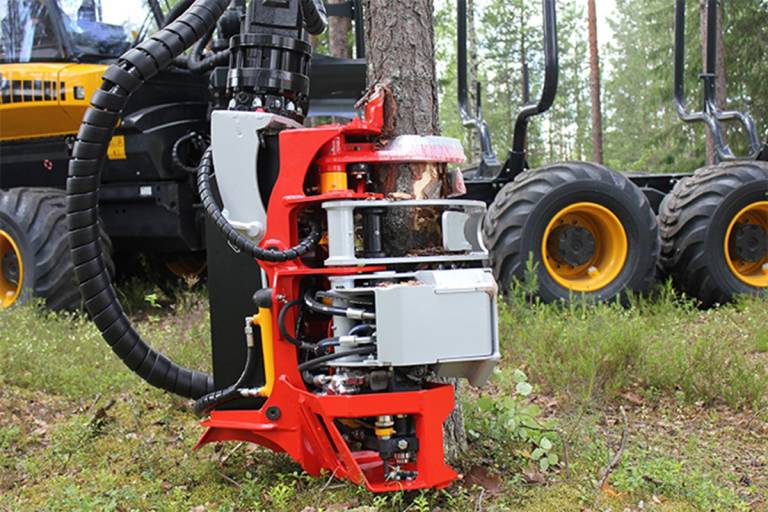Built for tough days in the forest
The Moheda forestry trailer – a well thought-out design from start
A Moheda forestry trailer has been developed to withstand the tough conditions in the forest. A robust piece of equipment with a well-thought-out basic design that has been developed and refined by Moheda’s technicians over the years, to become the robust trailers and cranes it is today.
With a successful combination of Småland pioneering spirit and ingenuity, Moheda were early adopters of frame steering and the first to use Robson drive on a forestry trailer. It is over 40 years since the first powered Moheda wagon left the factory. Many of the early wagons are still in service and are lovingly cared for by their owners. A reliable and flexible companion that faithfully turns up, regardless of the season and weather.
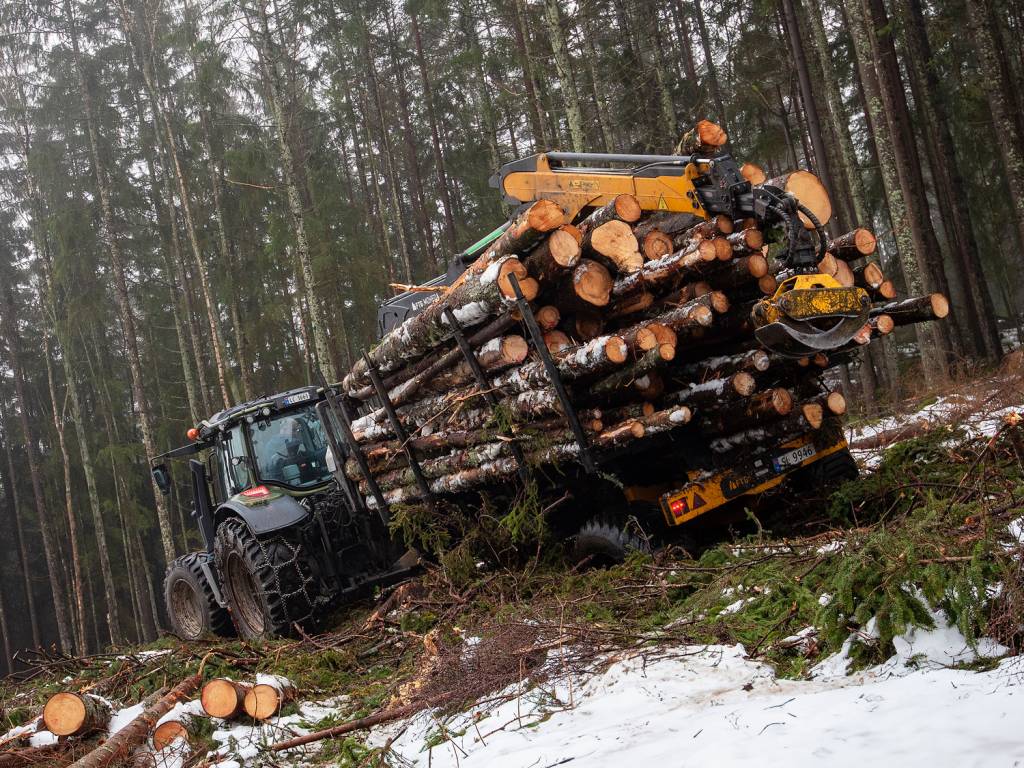
A Moheda is designed to take a beating. A robust combination with well-thought-out design that moves smoothly through the terrain without feeling clumsy. A reliable and flexible companion that faithfully turns up, regardless of the season and weather.
Built for tough days in the forest
It all started in a smithy in the south of Sweden
The pioneers from Småland
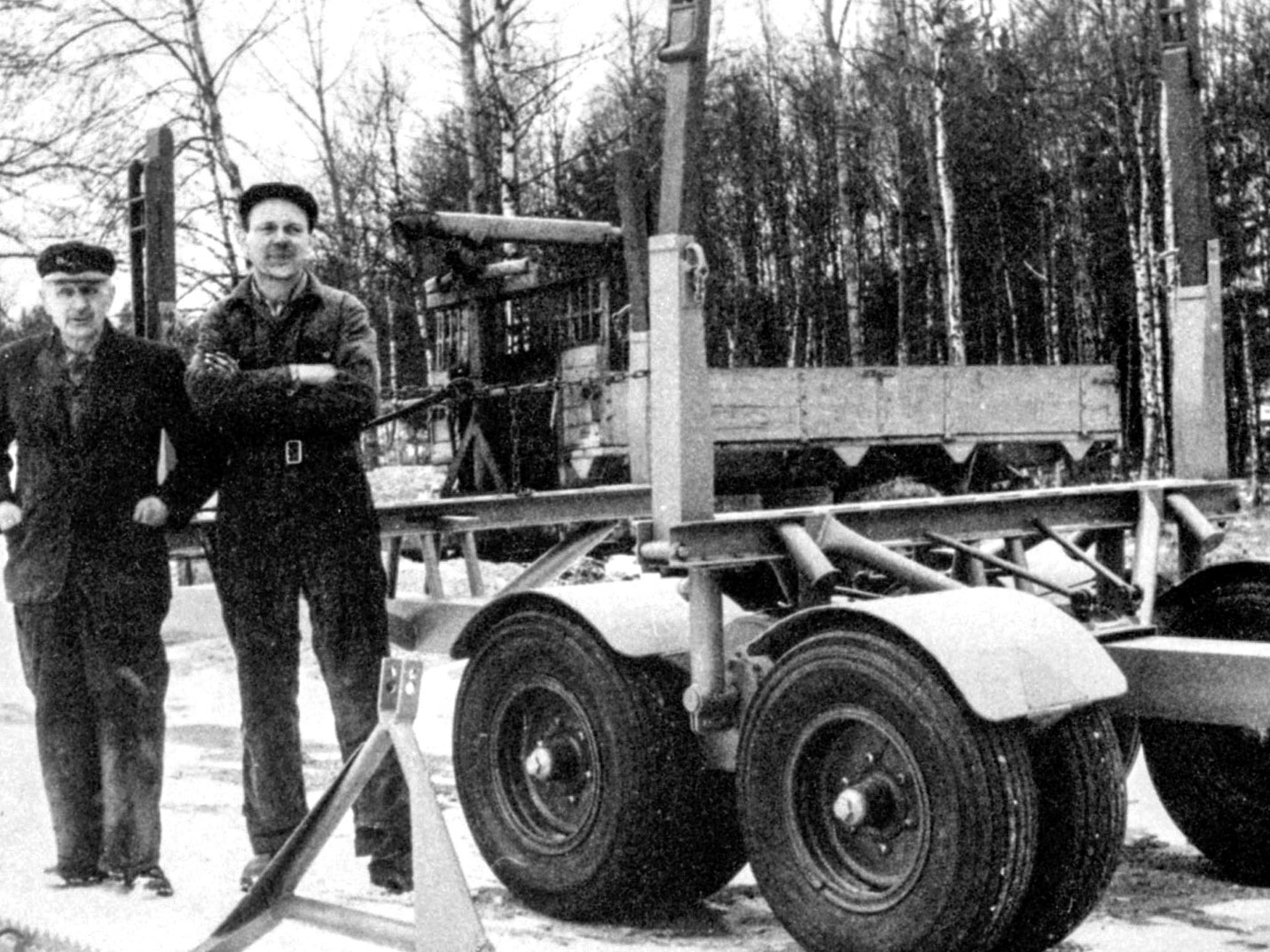
What is now FTG Moheda was founded back in the 1800s when Johannes Bergström started a blacksmith shop in Hössjö, just outside the village of Moheda in Småland. The forge was handed down and in the 1940s his son Allan Bergström took over, only 15 years old, when his father became suddenly ill and passed away. Wagons had been made for farmers for a long time, but then they were wooden constructions with iron rings around the wooden wheels.
In the early 1950s, Allan had designed a horse-drawn carriage in steel construction. Allan had sold and delivered a few wagons, as well as 2 wagons on order that had not yet been manufactured. A farmer in the neighbouring village had contacted him with an interest in a wagon and decided that he would come and look at it. The farmer had brought his neighbour along as a bit of support in the deal. After some conversation (presumably haggling) they agreed on a deal. Then the neighbour stepped forward and said ‘make one for me too’. Now Allan had an order for 4 wagons to be manufactured! This was the start of serial production of wagons, first for horses but a few years later the tractors had come to the farms, and then there were trailers for these.
The first to have square center beam
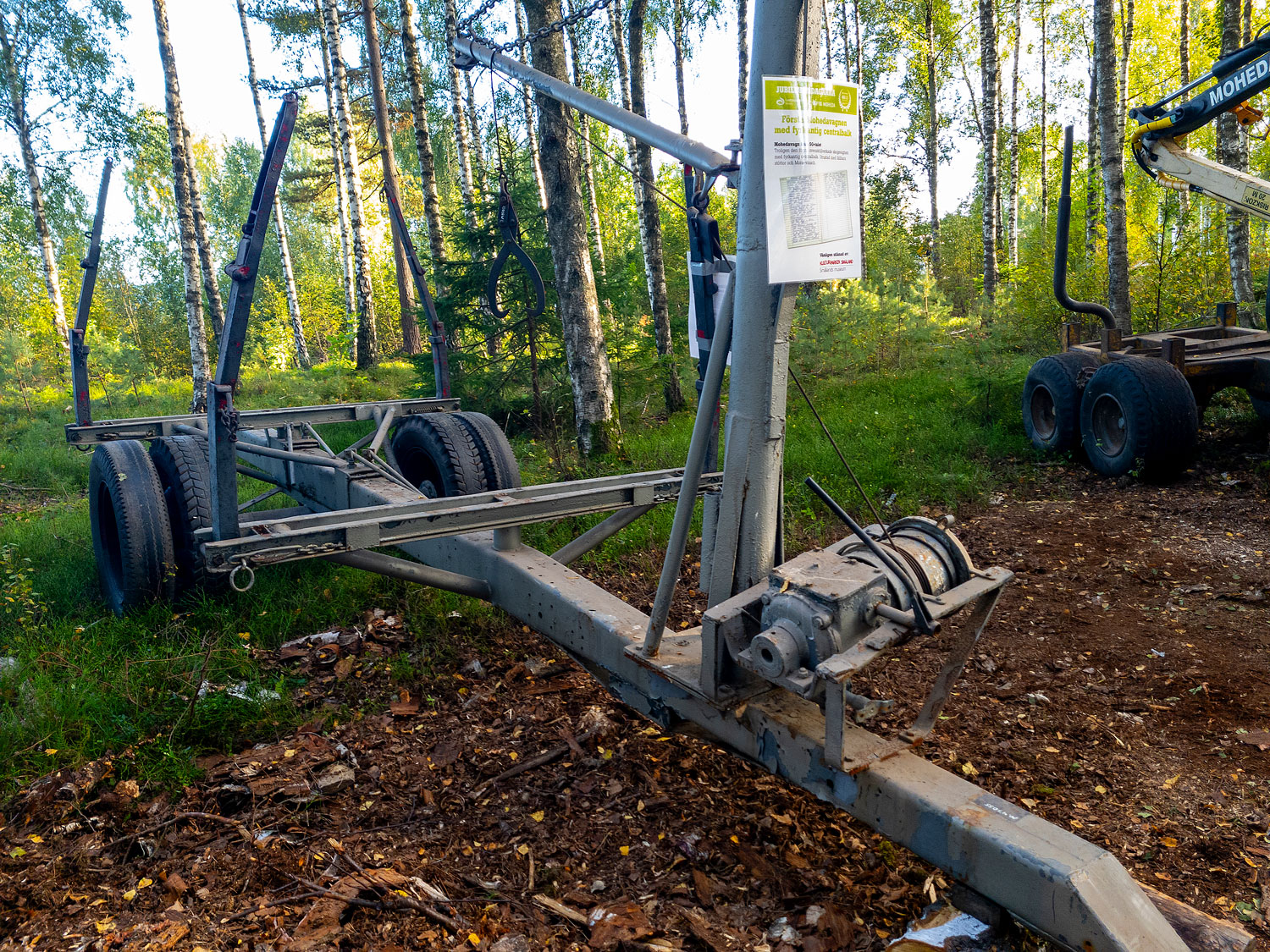
In the 1950s, round centre tubes were used, a natural development of the earlier wooden structures. At the end of the 1950s, a farmer in Moheda came to Allan with a scrapped bus frame consisting of two U-beams, and wanted a wagon made from this. Allan welded the U-beams together to form what was called a longitudinal beam. The rear wagon’s sleeve that would run on top of this was welded from plates. This was probably the first Swedish wagon made with a square centre beam. In the 1980s, Allan bought the wagon back and donated it to the Hjärtenholm Agricultural Museum outside Alvesta, where it can still be seen.
First driven trailer still in use
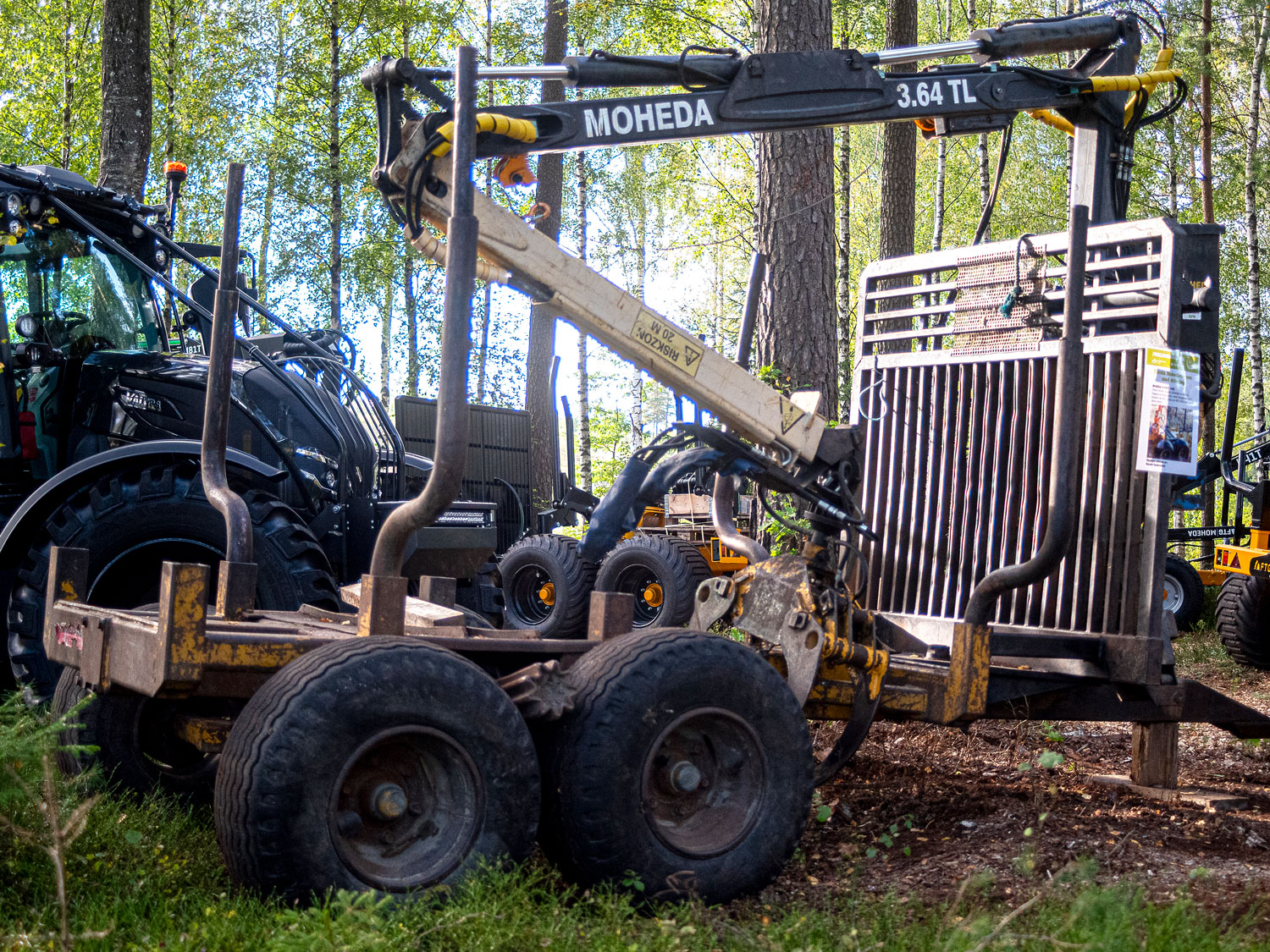
The Bergström family had many ideas and they were the first with a number of ‘inventions’ that have become standard on many wagons today. In addition to the square central frame, Moheda was also the first to mass-produce trailers with frame steering. In 1983, the first trailer with hydraulic roller drive was manufactured, which meant operation on all four wheels of the wagon. That wagon is still in daily use, 40 years later!
In the 90s came the hydraulic winch MV1400. Allan was also the designer of this. He made the attachment for the crane arm the same as FMV belt driven HV100. It usually worked well but was sensitive to rain when the belts slipped. Many MV1400 winches were sold to customers who wanted to replace their HV100. There were so many that Lantmännen had difficulty finding a market for the exchanged winches. Like so many other good designs, the winch was copied by other manufacturers. You can’t be alone in what’s good!
In the 2000s, a new crane bracket was introduced with space for the valve package in the crane pallet: Fully protected, does not obscure visibility. Easy to service as the valve is attached to a sled that is pulled out of the crane pallet when working. Still don’t know if any other manufacturer has made a similar solution.
The crane tip control X-ACT
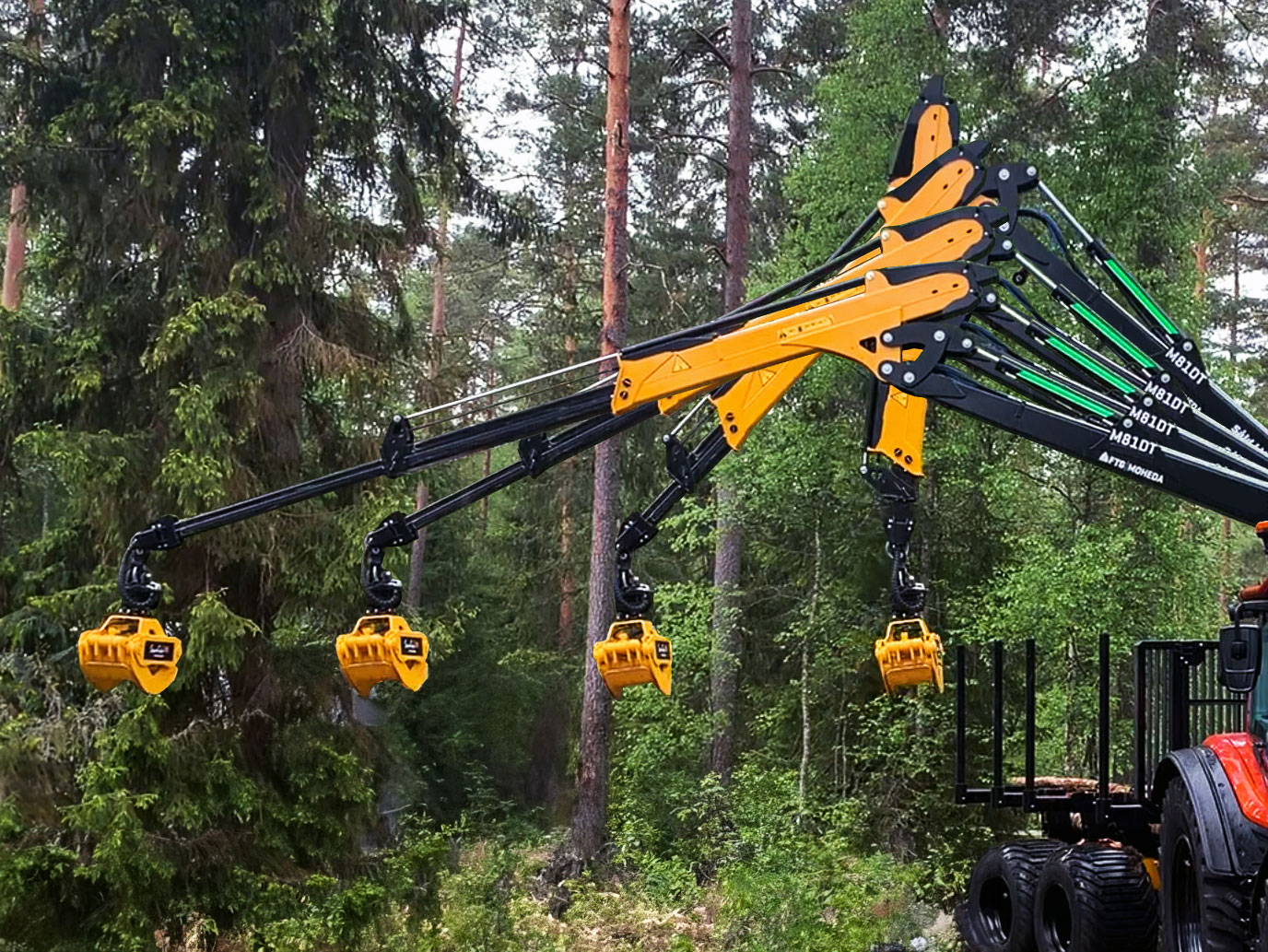
FTG X-ACT is an intelligent system that uses sensors on both telescope, boom, lifting arm and slewing motor to calculate the cranes current position. Advanced technology then controls the different parts of the crane synchronously to move the grapple to where you want. The only thing you have to do, is to decide whether you want the crane tip to move up or down, forward or backwards.
With one lever for horizontal and one for vertical movements the crane is very easy to control. The operator controls the crane tip instead of manoeuvring the cranes different parts separately.
FTG X-ACT makes the crane operation easier and faster and consequently increasing productivity with maximum precision, while relieving the operator during long working hours

FTG Group
Forest Technology Group, or FTG as we say, was formed in 2005 as a merger of several leading technology companies in the forestry industry in Sweden. Long tradition, high quality and technical expertise are some of the factors that have made FTG a leading player in forest trailers and forest cranes.
With long tradition, knowledge, technology and the Swedish high quality as a basis, FTG is today the clear market leader in the Nordic region in forest trailers and forest cranes, and an important player overall for small and large forest trailers and forest cranes throughout Europe. Our customers are mainly self-employed forest owners or contractors. Many of our employees have their own forests where they use FTG forestry trailers and cranes.
Our extensive product range includes forestry trailers, forestry cranes, winches, grapples and accessories such as graders and scarifiers, designed to meet the challenges of both light felling and professional forestry. FTG Group’s motto is that you should have a good day in the forest!
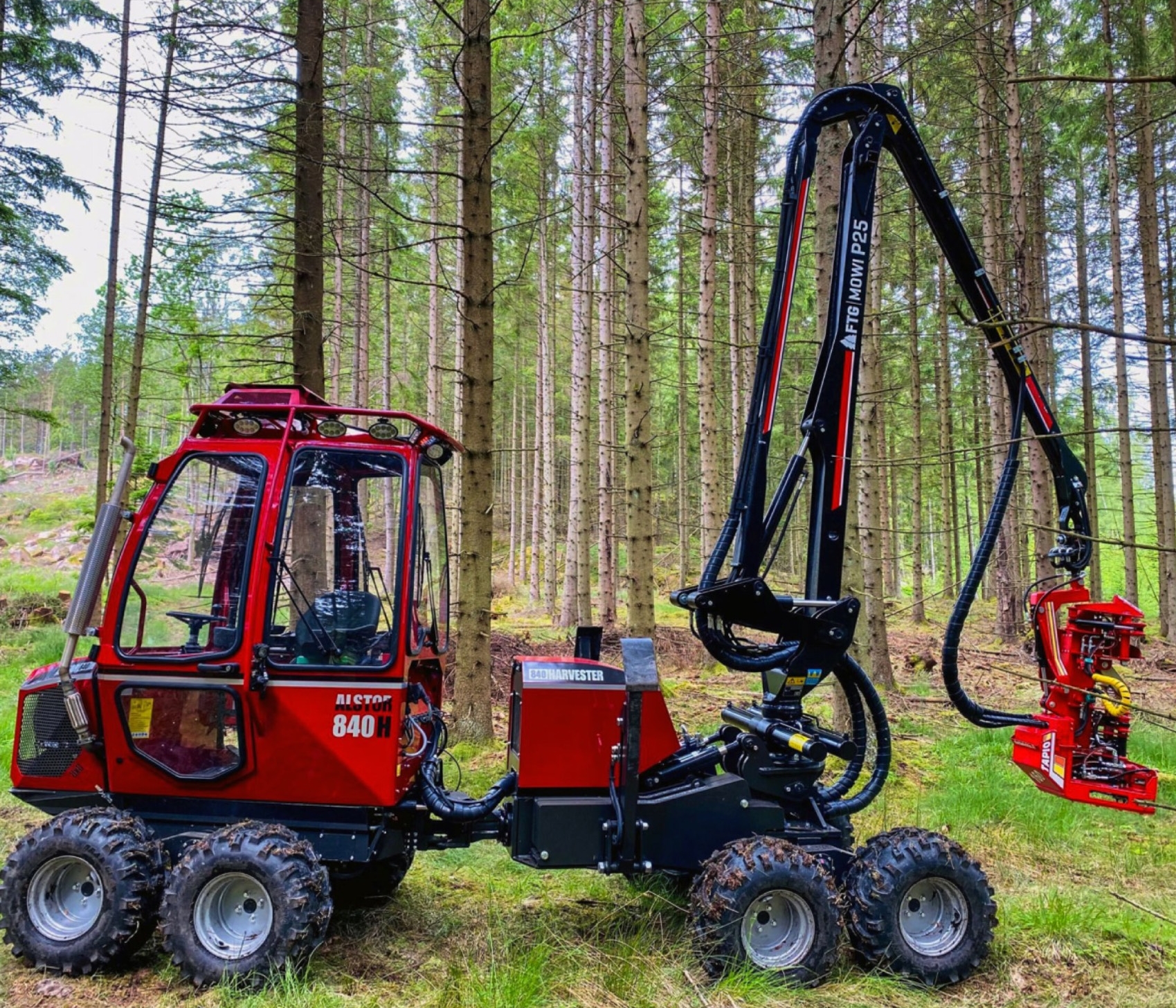
OEM-manufacturing
Special cranes for many different needs and purposes made in Sweden
- Cranes for recycling trucks
- Cranes for harvesters
- Cranes for forwarders
- Cranes for wood chippers
Discover FTG Mohedas wide range of products for a good day in the forest
Discover FTG Moheda’s wide range of products for a good day in the forest, designed to meet the needs of both self-employed forest owners and professional contractors.

